The Australian designer sewing a brand on ethics and sustainability
Start unpicking the fashion industry and the cost to climate is clear. But Queensland’s Outland Denim is determined to break the pattern.
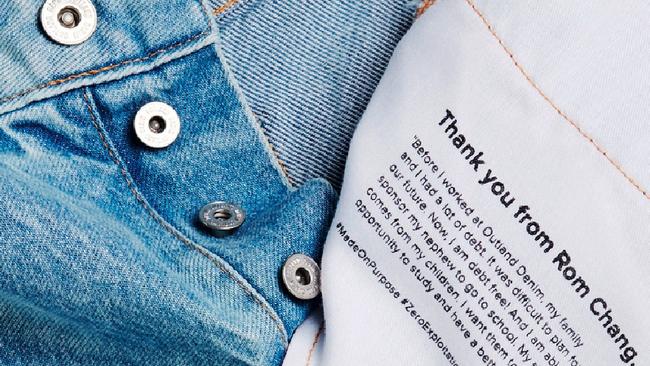
James Bartle is still haunted by her face: the little girl for sale on the streets of Thailand.
“I still can’t tell that story without tearing up,” he says. “She represents to me the 40 million or so slaves that exist in the world. I just want to fight for those people and I think that industry is the most powerful way of doing it.”
The little girl was the impetus that drove Bartle to set up Outland Denim as a way to get vulnerable women out of the trafficking cycle, to train and employ them for a better, more empowered life.
But it soon became an even bigger mission statement.
It was very early in his research that Bartle discovered the environmental challenges inherent in denim production, more than perhaps any other part of the fashion industry: the issues around cotton production itself, the chemicals used in the dyeing and treatment processes and the environmental impact they have, often affecting impoverished communities.
After nearly six years of self-funded research and development, the former freestyle motocross rider launched the label in 2016, with the ultimate goal of a positive impact on both people and planet.
It would be the beginning of a journey that continues to throw up problems requiring solving.
“Ignorance is an advantage,” he told me back in 2018. Today he insists that if he had known just how difficult it would be to pull off, “I definitely wouldn’t have started because it would have seemed impossible”.
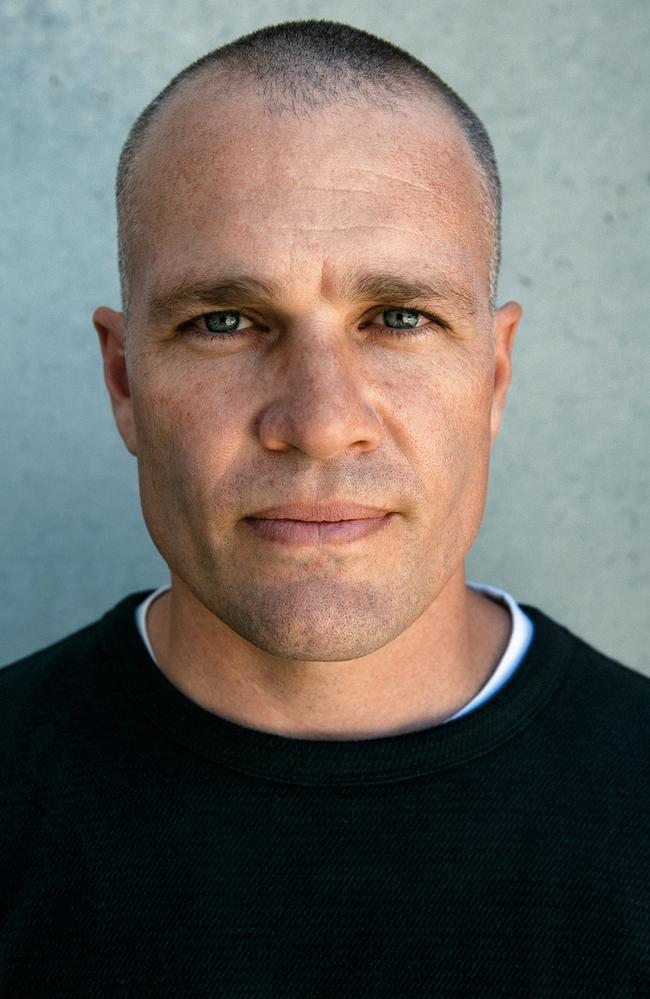
Five years in, and Bartle and Outland Denim have been recognised globally for their achievements so far, winning the Thomson Reuters Stop Slavery Enterprise Award for small- to medium-sized businesses in 2020, and being one of the winners in the 2019 Common Objective Leadership Awards for helping solve environmental challenges.
Outland Denim also got a (then) royal seal of approval from the environmentally minded Meghan Markle, Duchess of Sussex, who wore the brand when she toured Australia with Prince Harry six months after their wedding in 2018. The recognition that followed brought sell-outs and waiting lists across the world.
See the full list of green power players here
“We really can harness lots of good things that are being done in different areas and bring it all together to create, hopefully, a product that leaves people and planet in a better position because we grew the fibres and produced the garment and sold the garment and wore it. We can’t say that about the environment yet, but we can say it about the people.”
It’s this desire to create a positive impact on the environment, rather than simply create and follow best practice, that now drives Bartle to solve what he considers the biggest issue facing the fashion industry: textile waste.
“How are we going to deal with it? If we can crack that, then we’ve got a product that does leave people and planet in a better position and that speaks to my deep belief that consumerism – conscious consumerism – is the only solution.
“I mean, Richard Branson is making a rocket to go into space and we can’t solve textile waste going into landfill? To me the only thing in it is that there’s a lack of resources being put into solving the problem.”
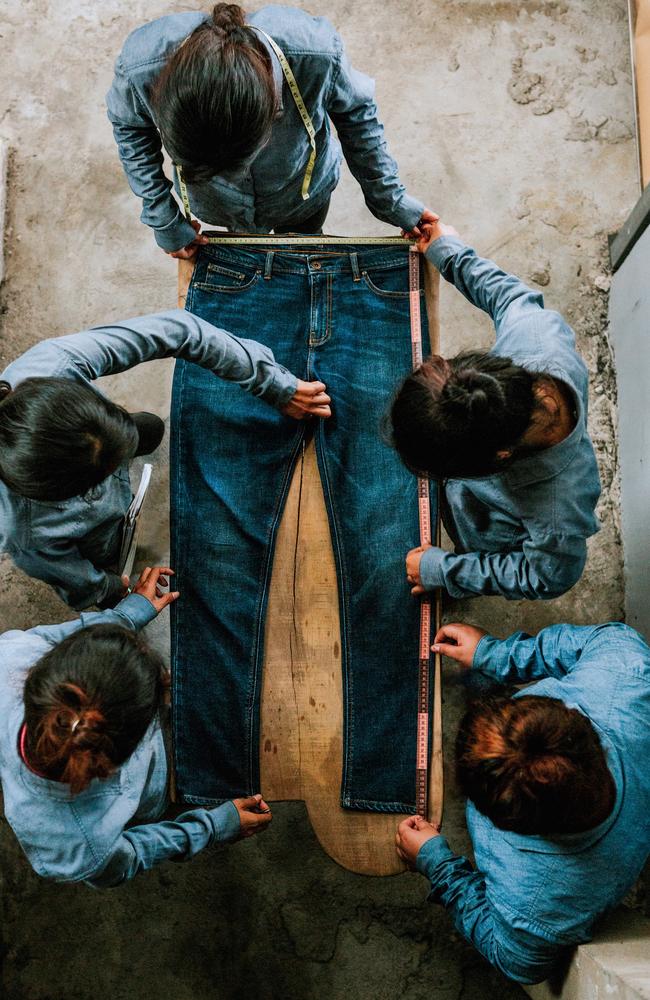
As with any fashion business that has to develop product, purchase materials, pay for labour and manufacturing before it sees any return, cashflow is an issue. Add to that raising funding for a brand that puts social and environmental outcomes ahead of immediate financial returns, and it takes a certain type of investor to get on board.
It’s this that initially led Bartle to crowdfunding: Outland Denim has so far raised $2.2 million in two rounds, attracting nearly 2000 people to invest in the bigger picture.
He looks at other examples from bigger players in the arena, such as San Francisco-based sustainable sneaker brand Allbirds, which recently raised US$300 million ($411 million) via an IPO.
THE NEW GREEN ECONOMY
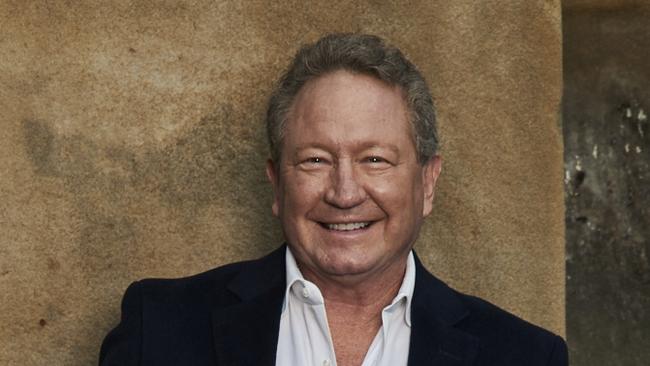
Twiggy’s green ambition put to the test
Andrew Forrest is convinced his ambitious green hydrogen plans are a key plank in the battle against global warming. But can the iron ore billionaire pull off the ultimate pivot?
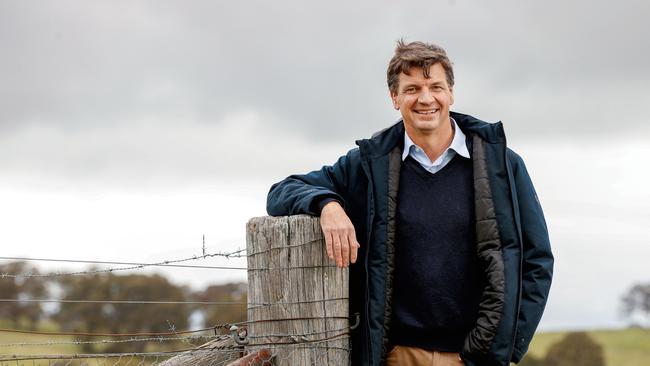
‘Cats can be herded if there’s a clear goal’: Angus Taylor
The government’s position on climate change is built on respect, says Industry, Energy and Emissions Reduction Minister Angus Taylor.

‘It’s our responsibility to be the adults’: Wikramanayake gets real
In a rare interview the Macquarie Group chief reveals its highly calculated approach to renewables investment and the discussion with her teenagers that crystallised the need to take action.
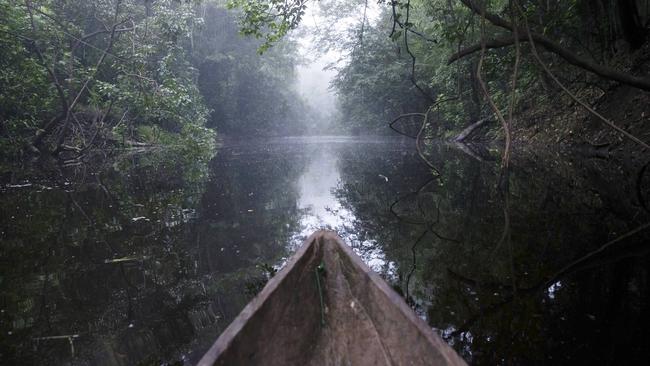
Is nature really at the centre of the ‘green dream’?
Looking after the land makes sense but in the end, someone has to pay. Good intentions will only go so far.
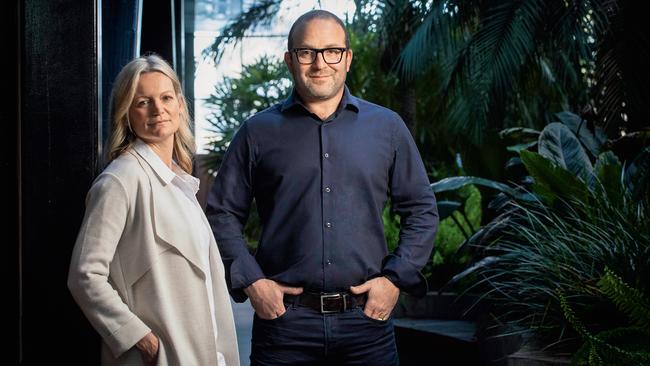
Rich-listers embrace climate shift
It’s no longer a question of choosing profit over planet. A new generation prioritises impact investing to retrain focus of their family wealth on a climate positive yet lucrative future.

Why climate change is a business opportunity
The transition to carbon neutrality will require trillions. For the financial sector this means not just the opportunity to fund the future, but to profit from it.
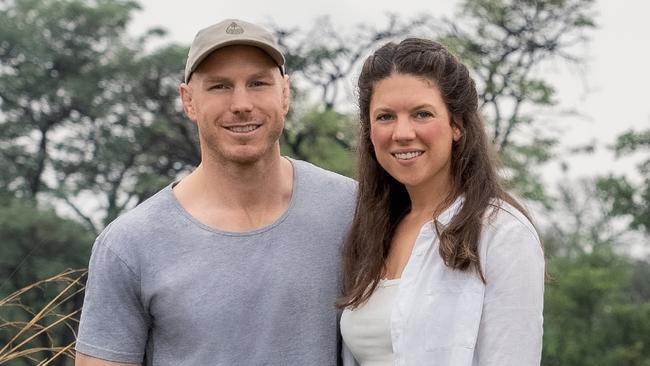
Rugby great takes climate fight to Canberra
David Pocock and wife Emma are playing to win with their commitment to turn talk into action on environmental issues.

Billionaire piles pressure on big Aussie polluters
Australia’s enormous resource companies are on notice as a new breed of emboldened financial agitators take an aggressive – and often effective – stance on climate accountability.
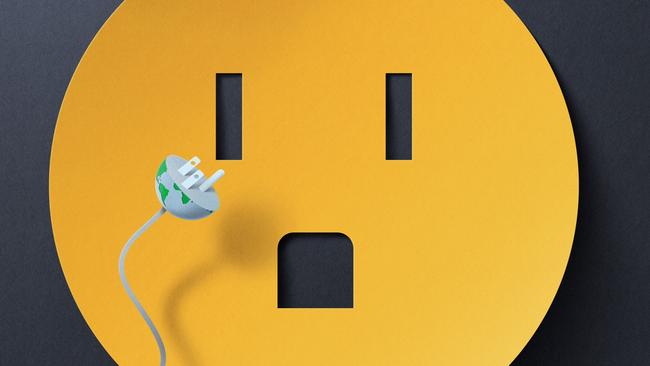
Could your car power your house one day?
A reality where the energy stored in your car is plugged in to electrify your home edges ever closer.
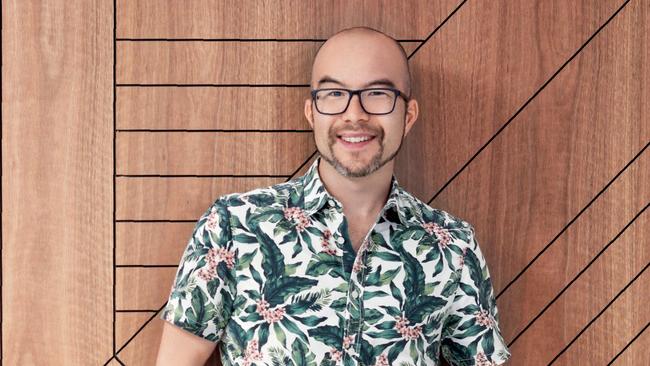
Cameron Adams on being a DJ loving climate warrior
Decisive action on climate matters as much as taking democratised design to the world for the co-founder of tech heavy-hitter, Canva.
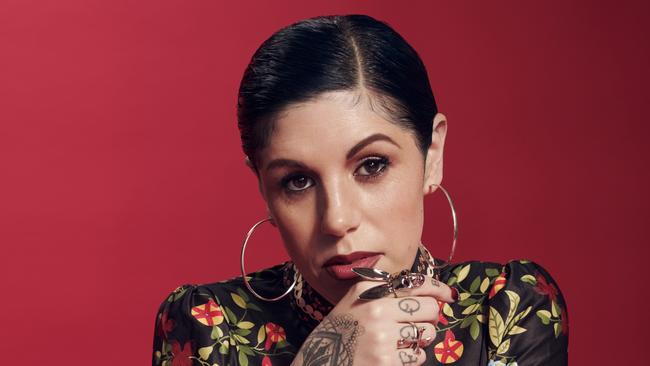
The Australian names to know in sustainable food and wine
From the man behind Sydney’s fish eatery Saint Peter to a self proclaimed meat-eating vegan, these Australians know a thing or two about sustainable food and wine.
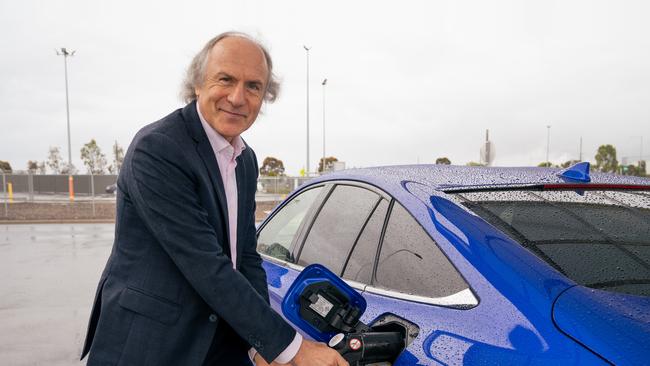
Alan Finkel: ‘Technology is enabled by government’
Now is the moment as government, industry, technology and communities embrace both the urgency and practical reality of emissions reduction.
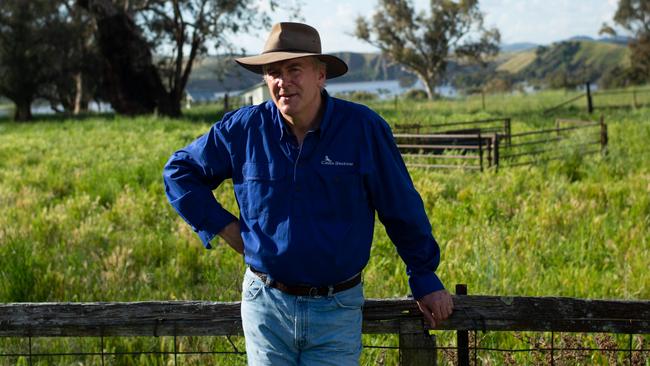
Climate solution may lie beneath our feet
One answer to the global emissions question is right beneath our feet, says newspaper publisher turned commercial cattle farmer Alasdair MacLeod.

Is this the cure for electric vehicle range anxiety?
Does the idea of electric vehicles give you range anxiety? Car companies have a cure for that, and it’s called a “PHEV”.
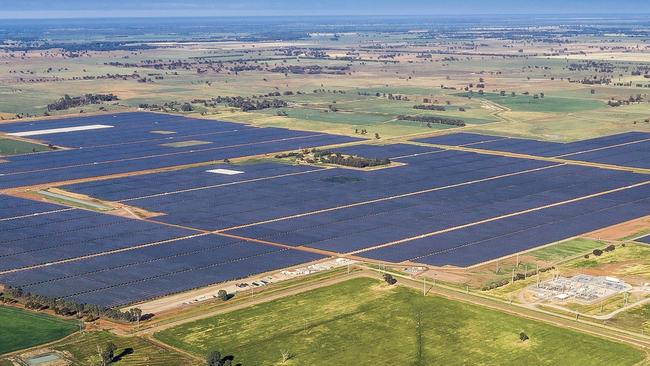
Solar plan set to shine
Australia’s appetite for solar continues to surge, driving everything from households and electric vehicles to mining projects seeking a cleaner future.
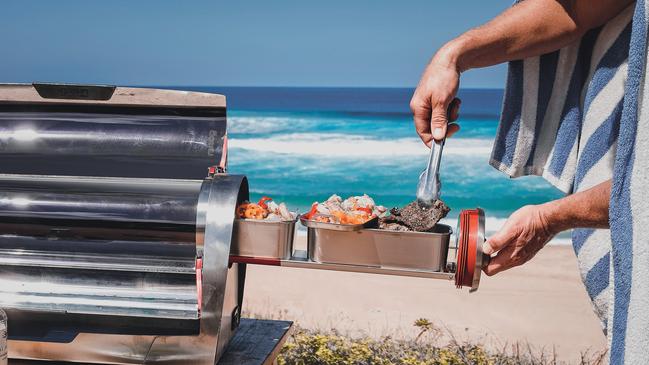
Six boundary-pushing tech innovations
From a solar-powered outdoor oven to robotic lawnmowers, the latest in green technology sets you up for a future-facing daily life.
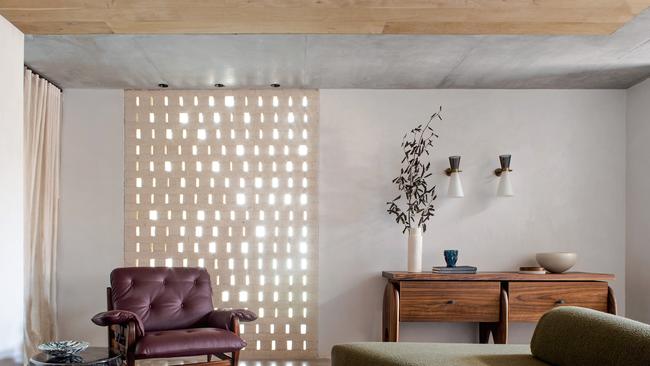
Can an office be sexy … and sustainable?
A leading design studio experiments with sustainability by stealth at their innovative – and sexy – Sydney HQ.
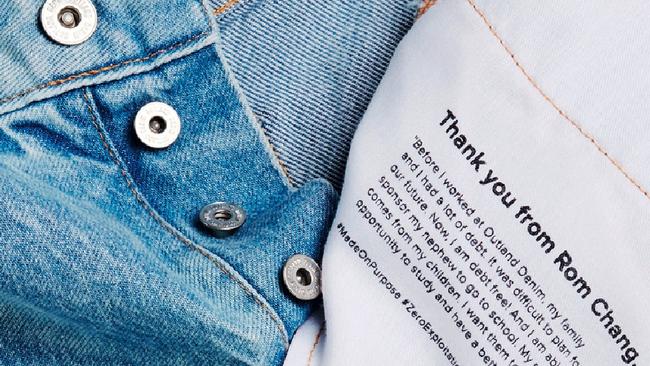
The Australian denim brand leading the charge
Start unpicking the fashion industry and the cost to climate is clear. But Queensland’s Outland Denim is determined to break the pattern.
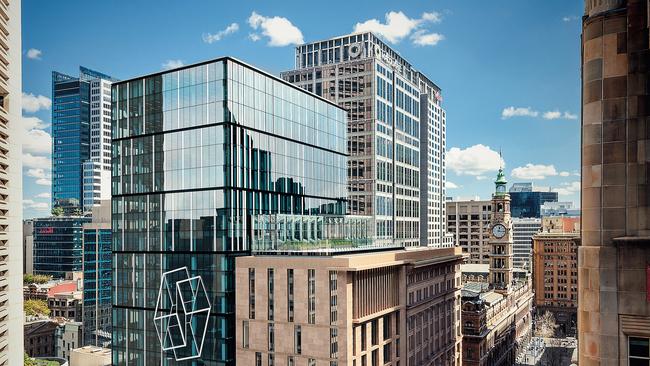
Sky’s the limit: Inside Australia’s greenest buildings
Concern for the environment and employees alike is at the heart of these top four sustainable, and awarded, new commercial spaces. SEE THE PICTURES

Living sustainably is harder than it looks
Two very different lives, one urgent shared challenge: to take concrete steps towards more sustainable daily choices.
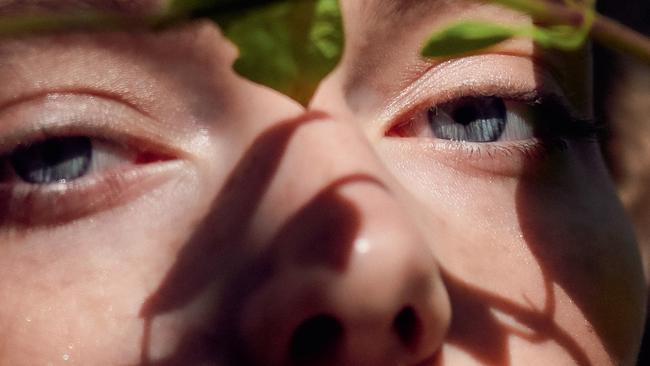
Skincare brands put planet before profit
A swath of pioneering skincare brands are setting new low-impact benchmarks in the process.
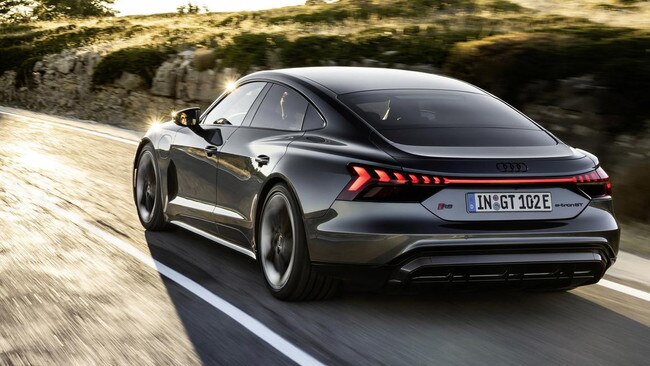
Solid-state batteries ‘will secure EVs’ future’
For electric vehicles to truly capture the public’s imagination – and wallets – charging certainty and speed is necessary. Enter the solid-state battery.
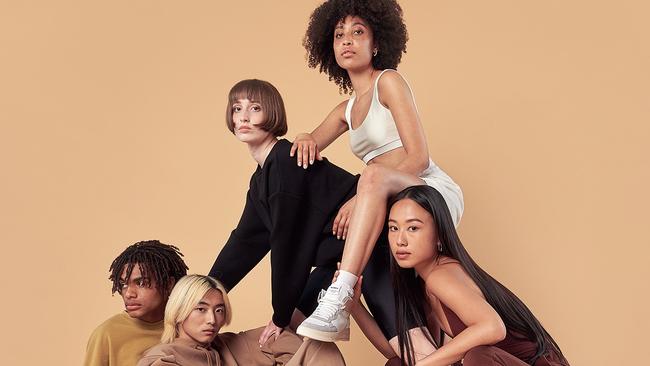
The fashion innovators to know in 2022
French house Hermès turns luxury leftovers into pieces of creative expression, plus the latest in ethical design and the rise of resale.
“Think about the change that could be created with that kind of money if your model is based on implementing these systems that we have now proven create freedom for people and better, more sustainable ways of manufacturing. They’re game-changing kinds of numbers,” Bartle says.
“But small businesses like us don’t have the ability to raise those kinds of numbers at this point in the game. So how do you attract the right money, because that’s just as important as getting the money to start with? Australia’s probably got a fair way to go in the impact-investing space, and that’s why I like crowdsource funding.”
Outland has managed to continue its growth trajectory even through the pandemic and two rounds of retail lockdowns, thanks largely to investment in its online platform: “This last month we had our biggest month of sales online that we’ve ever had”.
Now, it’s all about scale. Outland is already manufacturing for New Zealand’s Karen Walker and Byron Bay favourite Spell, with another label in the works. It’s similar to the crowdfunding approach in a way, tapping into other communities who can then spread the word.
As per Bartle’s early realisation, the more you learn about the fashion industry, the more you find problems that will need solutions.
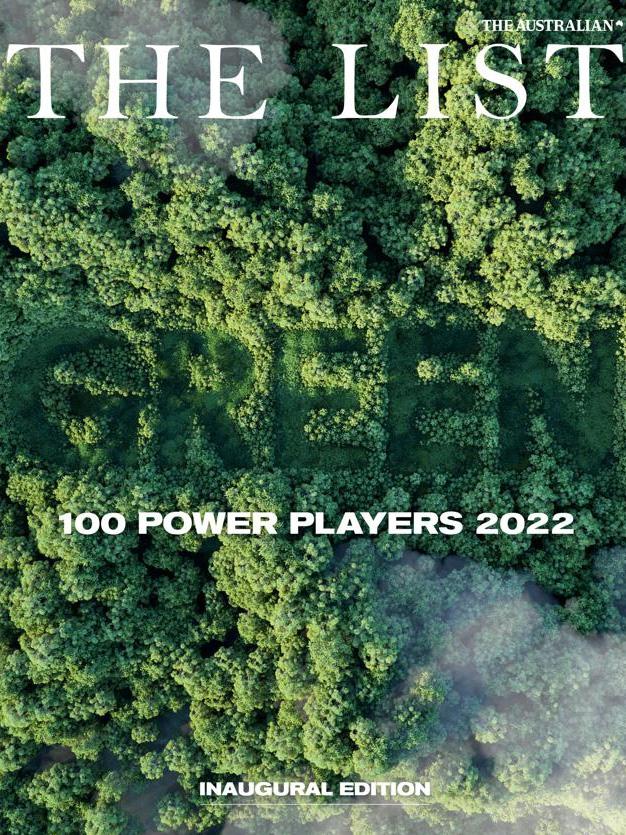
Those issues include (at the moment) the marketing spin that is greenwashing, and educating consumers on, for example, why they should buy a pair of $200 jeans rather than some $20 ones.
“Our culture has changed because of the education we’ve had around fast fashion. For the past 10 years [we’ve been told] that for $200 we should be allowed to have 10 pairs of jeans, regardless of the consequences those cheaper jeans are having on people and planet.”
Bartle has seen first hand the impact that a living wage and an ethical, supportive working environment can have on the now 130 women working in the two Outland factories in Kampong Cham and Phnom Penh.
Ultimately, Bartle is a believer that the only way to solve the environmental issues the world is facing is to get people out of poverty. He cites the work of Kevin Bales, a professor at the University of Nottingham and an expert on modern slavery.
In his paper, From Forests to Factories: How modern slavery deepens the crisis of climate change, Bales concludes that if modern slaves were a country, they would be “the third largest emitters of carbon dioxide in the world”.
“A lot of that is due to deforestation and vulnerable people being forced into those kinds of activities,” says Bartle. “If you want to change this issue of climate change, you need to address people. It’s going to come through employment, through good job opportunities that are going to provide education or at least the means to be educated so that our population can rise above that day-to-day or hour-to-hour anxiety of ‘What am I going to feed my family?’ to ‘How can I be a part of something bigger?’.
“Because all of us ultimately have that same value. It’s just that some of us have the space to think about it and some of us haven’t been given that luxury yet.”
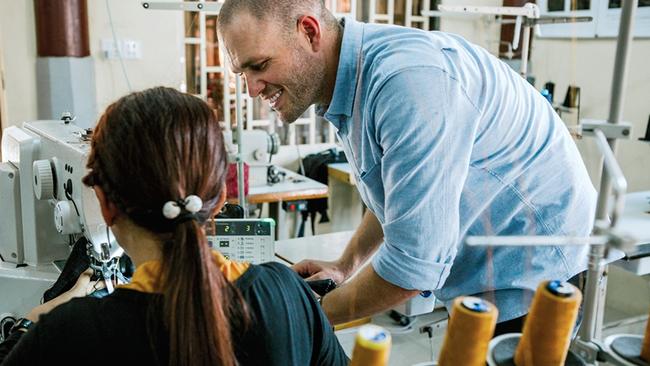
——————————————————————————————————
Good jeans
Denim is often cited as one of the worst offenders when it comes to environmental impact but fortunately a slew of innovative approaches are overhauling the industry, writes Alice Birrell
Colour from clay
Outland Denim’s James Bartle is looking beyond the usual harmful chemicals for dyeing and treating denim by this month launching a range that takes its colour from clay. The denim, made with 100 per cent organic cotton in a soft shade of peach, undergoes a natural dyeing process.
Biodegradable in blue
The synthetics that give stretch denim its give also mean it doesn’t break down. Now, with innovations such as Italian textile company Candiani’s Coreva fabric — where fibres from natural rubber are used instead — more brands are making biodegradable denim. The latest is American label Frame, joining the compostable classics from Stella McCartney and AG.
Net positive
Sourcing materials from the wild is not usually par for the course in fashion but material science and clothing company Pangaia is proving it can be done. It works with Himalayan Wild Fibers to harvest nettles from mountain forests to produce a low-impact cotton blend.
Excellent vintage
Depop, the platform responsible for popularising resale, recently enlisted three creators and sellers from Australia and New Zealand for a partnership that reworks vintage Levi’s from the brand’s archives. Tanzyn Crawford, Luca Young and Sha’an D’Anthes demonstrate that the future of denim is in reworking.

To join the conversation, please log in. Don't have an account? Register
Join the conversation, you are commenting as Logout